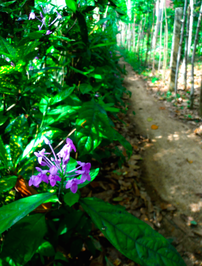
I walked for about half an hour and then stopped at a rock outcropping that cut off my progress in high tide, and headed back. On my way back, I noticed a nice spot under a few palm trees that wasn’t littered with tourists or the remnants of their vice. I sat down on the sand.
These days, I mostly go on intuition. I follow the vibe, and if I feel I should stop then I stop. When I feel I should go, I go, and it’s usually as simple as that, and always serves me well.
They told me how not enough tourists were friendly and it was nice I smiled and came over. Too many tourists only hang out with their own, looking down at the locals like they’re invisible. Especially the Russians, they said, who never smile or are friendly. They asked me about where I was from (everyone here loves U.S.A and is interested because there aren’t many tourists from there) and my plans in Sri Lanka. As they smoked, we chatted about their village. I told them I was planning on just walking around.
In flip-flops and a swimsuit with a backpack, I followed my new guide as we crossed the train tracks into the interior. He wasn’t much of a talker (which was fine with me) and to be honest I never even caught his name when he told me, but he would narrate the various flora and fauna as we passed. His grandfather was a natural healer for the village in a much simpler time, when everyone ate and lived off the land and the sea.
“Who?”
“Bob Marley. The natural mystic.” I told him I hadn’t known that but I loved his music.
We walked on a one-lane paved road, tiny lanes through surprisingly beautiful colonial summer homes for rich Sri Lankans that looked like something out of the Swiss Alps, dirt paths that led to more humble one-room shacks with laundry hanging on the fence in front, and then traversed through the jungle thickets, my new friend holding back vines and bushes so they wouldn’t snap back on me. Soon, there were no roads, and we followed footpaths or then trails into the growth that were indecipherable to me.
He pointed out jack fruit that could feed a whole family, hibiscus you make a tea from the flowers, clover-like low ground cover that is healing for bare feet in the early morning, young pineapples growing, the rice paddies that were abandoned and overgrown after the tsunami, and a root that looks and smells like ginger but is poisonous. He showed me a tiny fern that folded up as a natural defense whenever you touched it. He explained that that fern was ground up and used as a natural version of Viagra, but I assured him that I didn't need it because the bamboo was still strong.
“See that little black and yellow bird over there in the tree? That’ good luck.”
With his encyclopedic knowledge of the natural world around us, he broke off leaves and rubbed them together and held them out for me to smell: cinnamon, curry trees, spicy red peppers, lavender.
He knew them all, and acknowledged them with a silent nod. “In this village, everyone knows everyone,” he said. “That is good. But sometimes bad,” he laughed.
He told me how when he was younger, no one wanted to be out after 6pm. There were no streetlights or electric lights in the homes then, and some of the sidewalk-like roads we were using didn’t even exist. “And ghosts. Every child was scared of spirits after dark back then.”
It wasn’t hot but the air almost dripping with tropical humidity, so he stopped at a well and dropped a bucket into it and drew cold, clear water for us to drink and splash on our faces. We took a shortcut on the “jungle road” that led us up a steep hill, past a school where children studied math outdoors covered only by a pavilion roof, to the crest where a Buddhist temple sat.
“Take off your sunglasses,” he advised me as is the custom, and we removed our shoes, too and entered. He showed me the 27 statues of Buddha, each one in a different pose with a different meaning. No one else was there in the whole monk’s compound but the incense was still burning and offerings out from that morning. We stopped there in silence and felt the breeze.
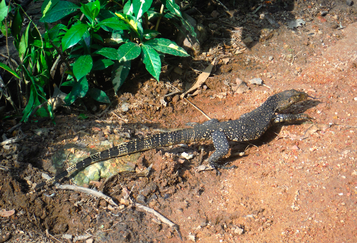
We got down to the lake and we wound through mud flats and ferns taller than two of us. Something moved in the bushes and he held out his hand to stop me. An iguana scampered past, about three feet from head to tail. “That’s a young one,” he said, “But they are dangerous when they are older.”
“Do they bite?” I asked.
“No, they whip with their tail, which is like a razor. There is poison in the tail that no medicine or even hospital can save.”
We bid him a good day and walked on his property through swamp flats toward a good swimming hole. An old lady carrying water buckets passed us, her face set in a permanent squint from decades of staring into the sun reflecting off the water. She was the wife of a fisherman and my friend showed me where they had prawn nets set up in the water to grow their catch.
“Someone sleeps in there to guard the shrimp from thieves,” he said. “Every night.”
We had to jump over a few streams and take off our flip flops and wade across a creek but we got to the swimming hole on the lake, and went in and splashed around, enjoying the cool relief. He pointed to an island far out in the lake.
I waited for something gruesome to come from his mouth.
"The villagers give them a blanket and food and water and let them sleep in their hut. In the morning, they give them some money and point them to the bus and tell them to go back home and don't come back," he went on. "Some of the kids just stole because they were hungry or from bad places with no parents."
He led me cautiously around huge black scorpions in the street, which he explained had ventured out from the jungle only because it rained the night before. We were both hot and tired and thirsty. “You want coconut water?” he asked, and led me to a gardened yard by a simple cement house. No one was there but he felt over the door and found the key and let himself in. He came out with a machete and suddenly I realized how far out in the middle of nowhere I was, with no ID on me, no phone, and no one that even remotely knew where I was or who I was with.
“It’s my brother’s house,” he said. He picked up a strand of course rope off the ground and looped it around his feet and started climbing a coconut palm tree, securing his feet around the tree first then pushing off to inch up. He was to the top – 50 feet up – in less than a minute and twisted coconuts off the branches until they fell to the ground. He scurried down and cut open the coconuts and we drank the cool water and ate the white meat.
We heard scampering in the tree tops as we walked and my friend pointed out monkeys. There were everywhere, but quickly climbed out of site when we approached.
“They are scared of you,” he said.
“Why are they scared of us?”
“No – you,” he said. “They see your white skin. The British used to shoot them, so now they remember even generations later and run when they see a white man.”
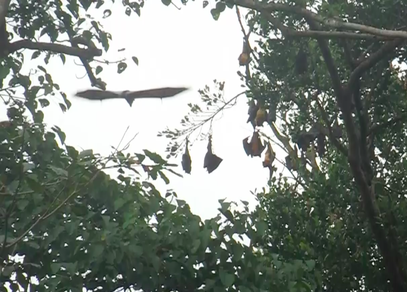
“What am I looking at?” I asked.
“Watch,” and he clapped his hands and immediately scores of huge birds hanging upside down from the branches, as big as falcons, started whirling their wings and flew about.
“They are dog bats, because their face looks like a dog,” he said. “Good eating too. My uncle shot one once and we ate it and it was the best meat I've ever had. They're so tasty because they only eat fruit.”
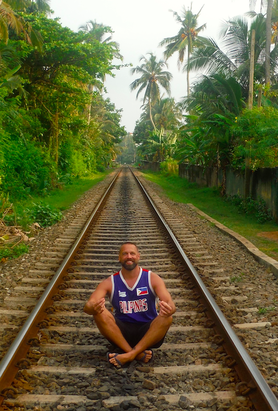
“I take a photo of you,” he offered, so I sat on the tracks in my best lotus pose.
When we got back to the main beach road it was as if civilization and the modern world roared back into our senses – tourists laughing too loud on their way to the bar, a chicken bus roaring by, tuk tuk drivers offering rides.
There was no grand goodbye or false sentimentality between us. I thanked him and patted him on the back, then handed him 2,000 Rupees – about $18 – for his trouble, even though he hadn’t asked.
“Come find me tomorrow,” he said.
“Cool. Where and what time are you thinking? Or do you have an email? I have a local cell phone, too.”
“Just find me on the beach,” he said. “I’ll be around.”
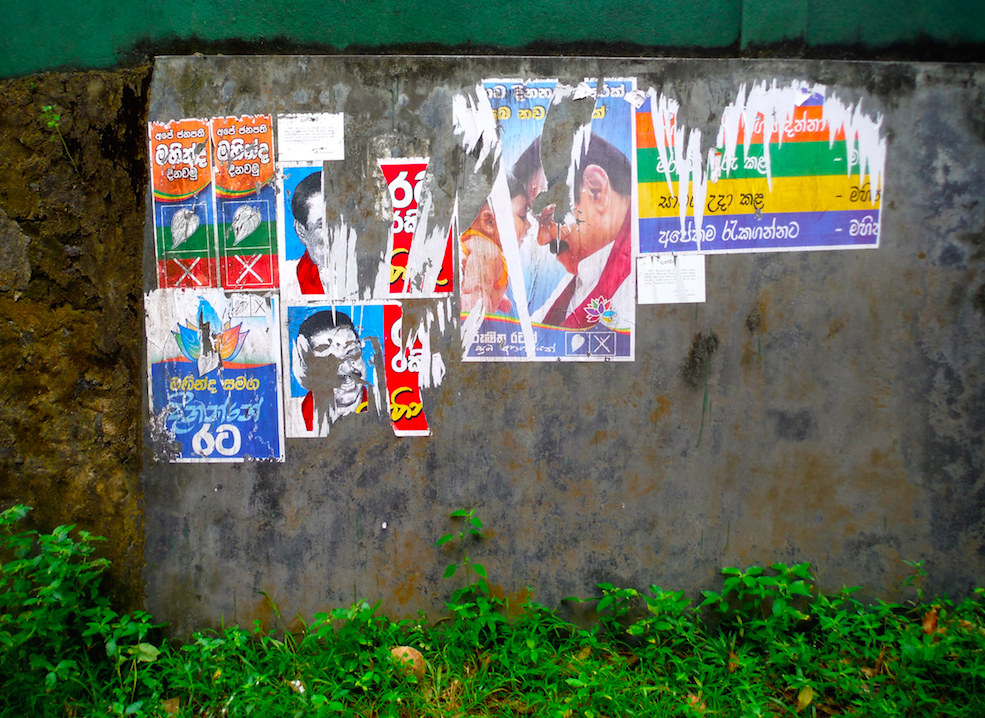
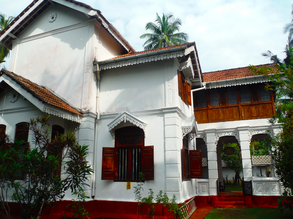
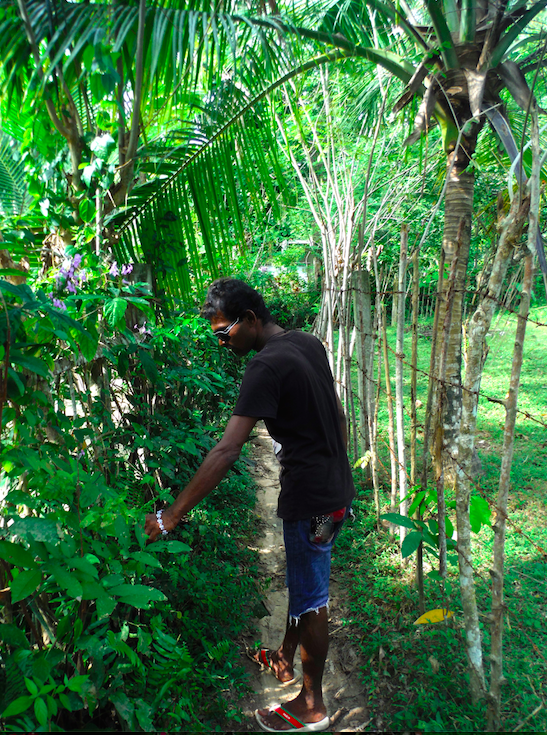
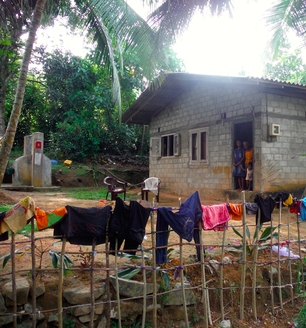
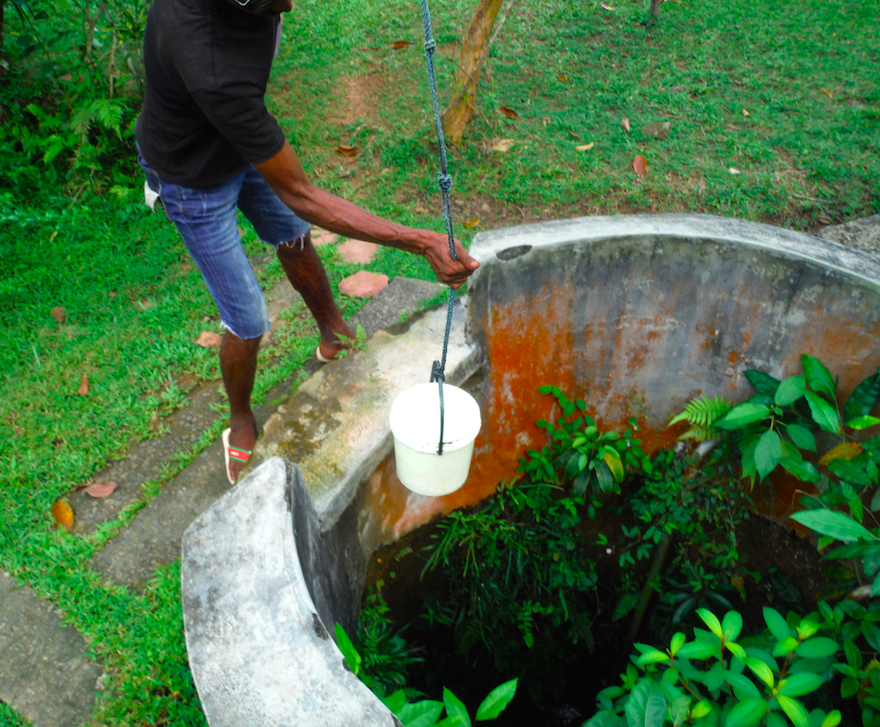
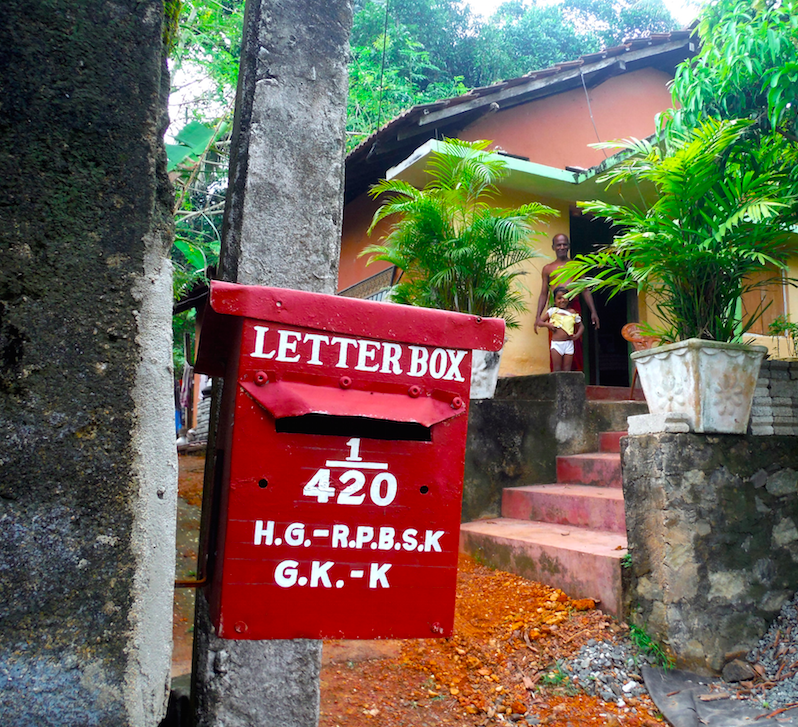
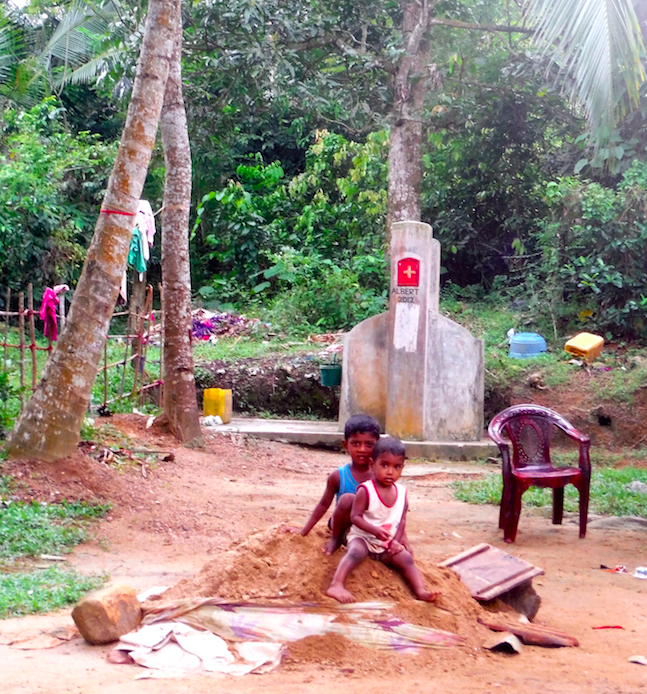
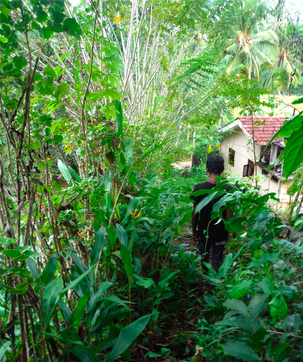
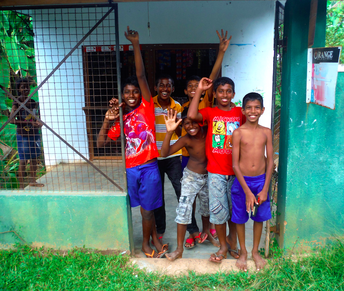
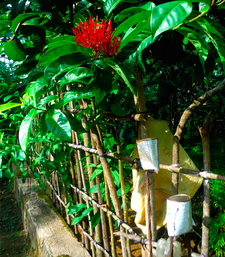
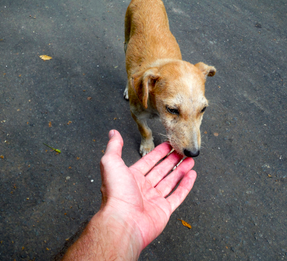
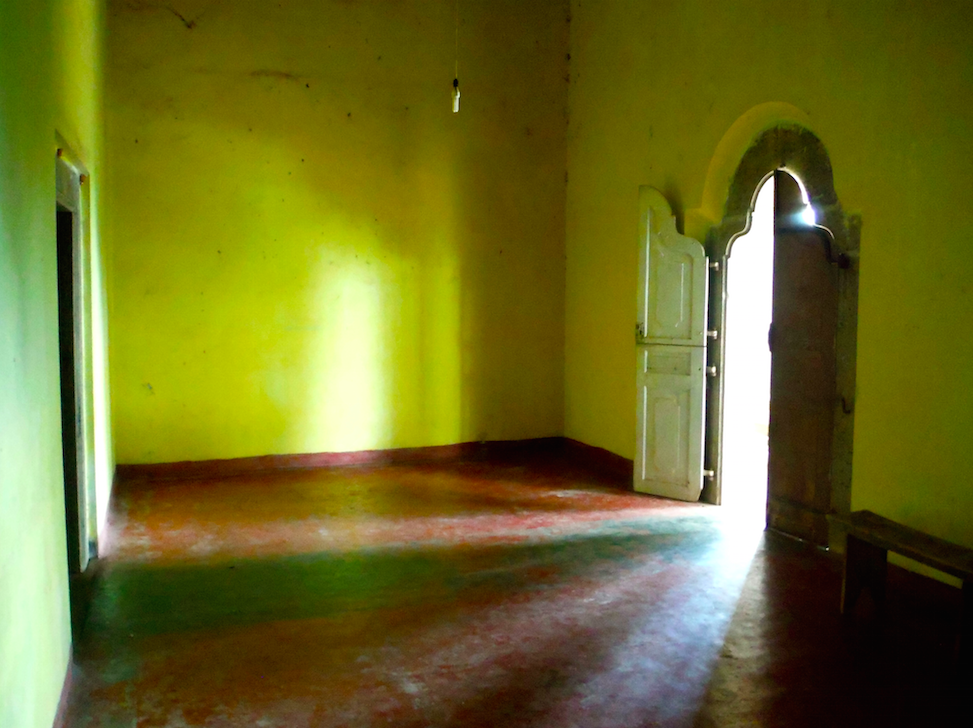
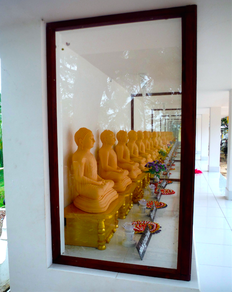
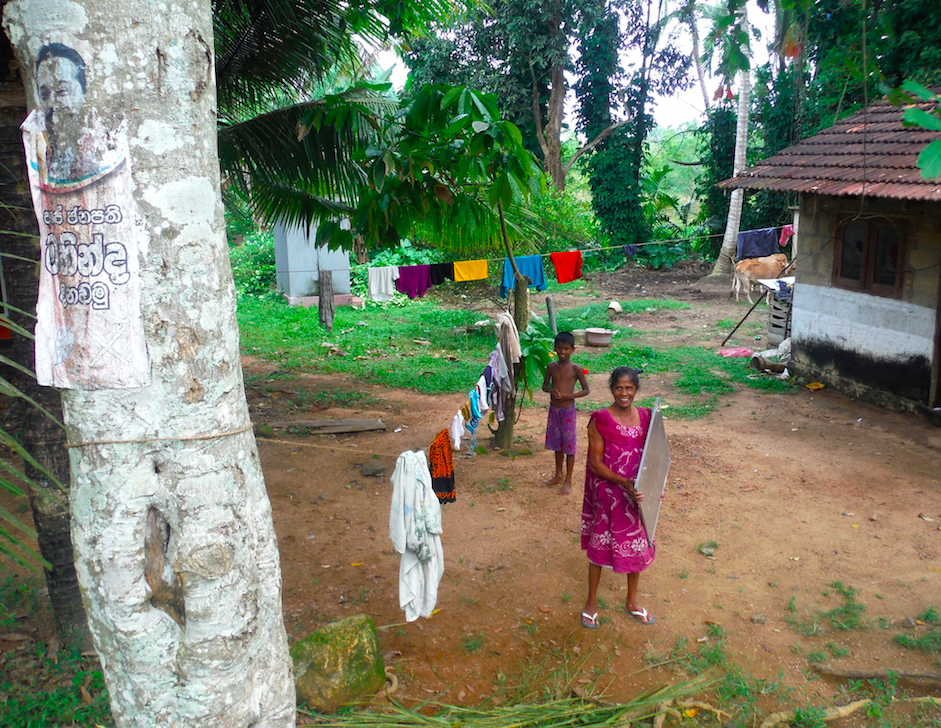
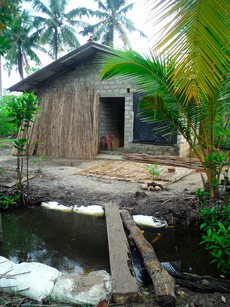
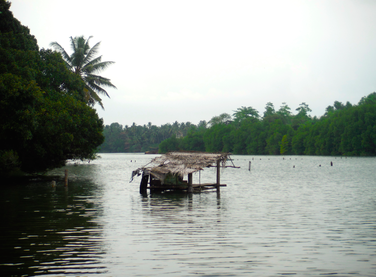
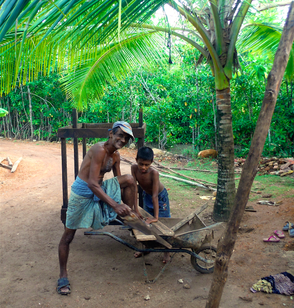
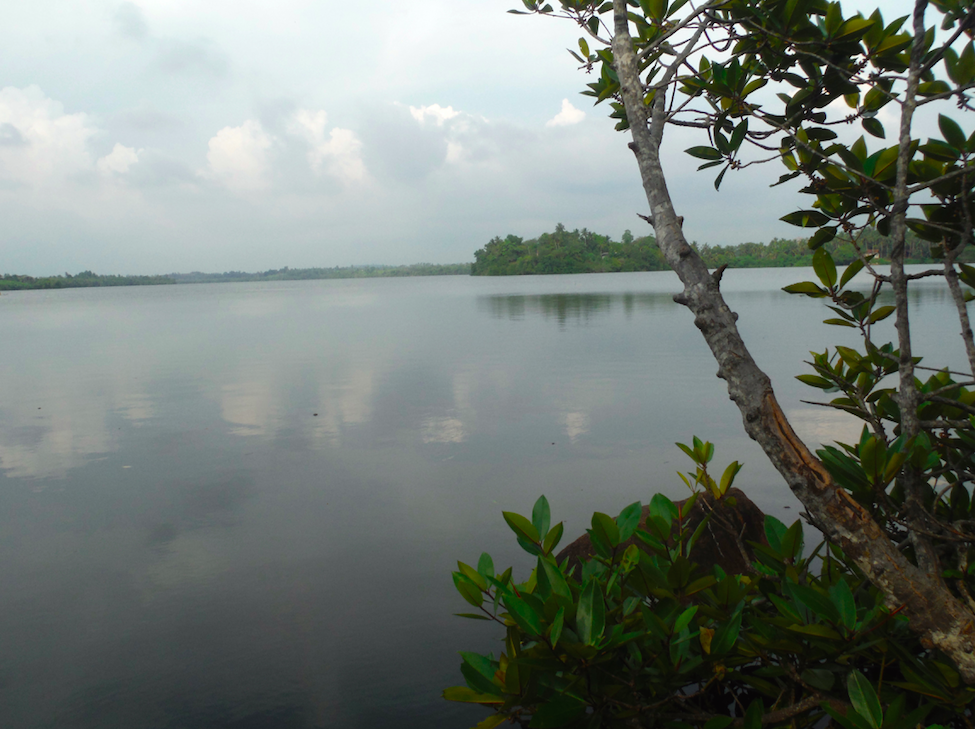
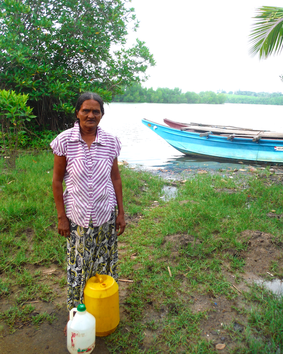
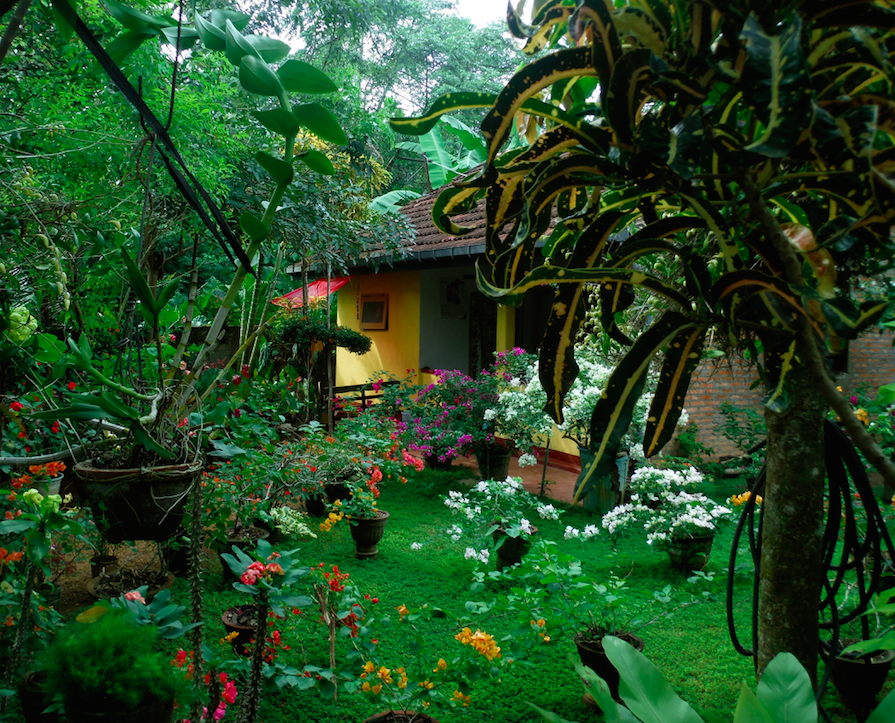
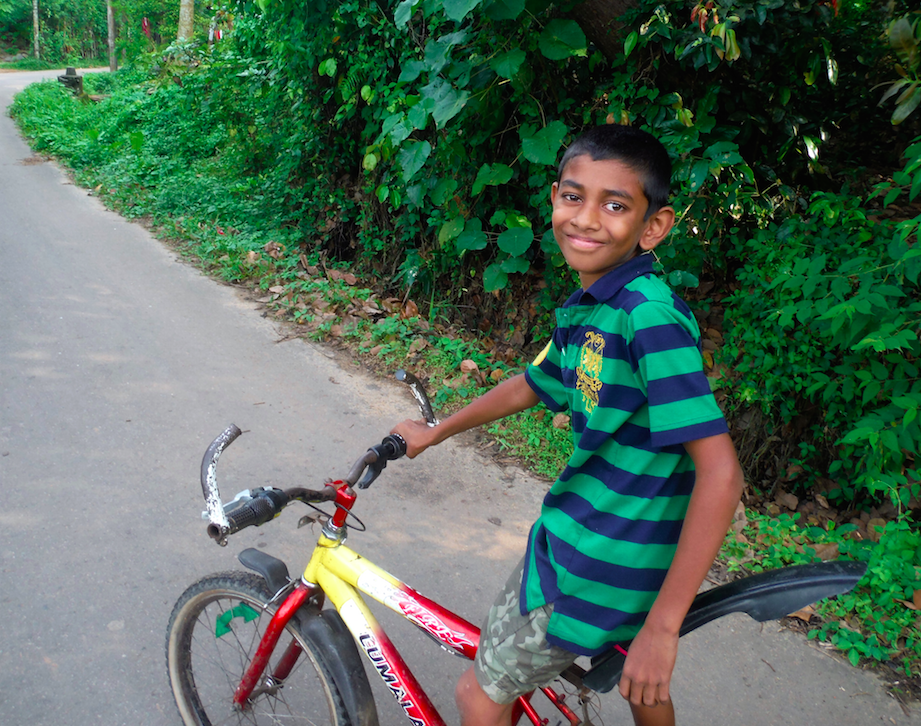
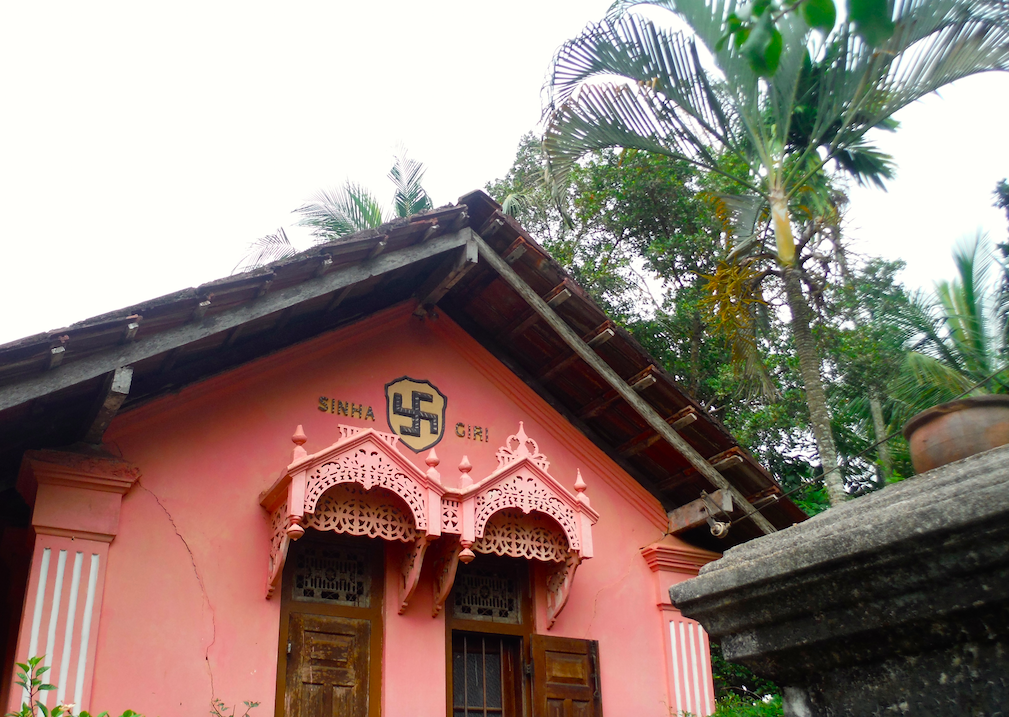
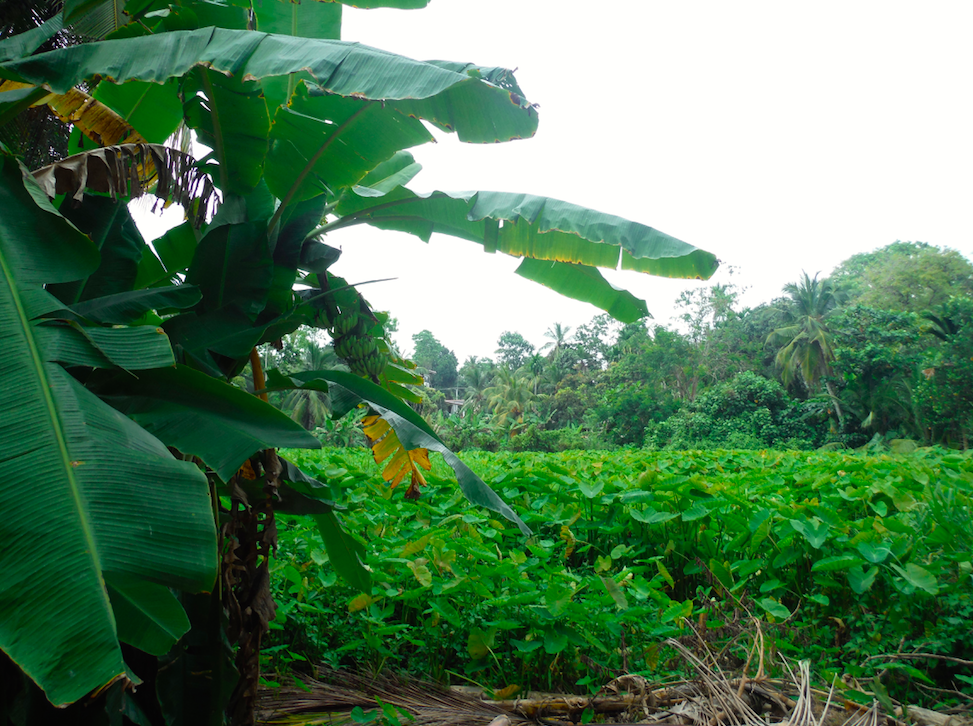
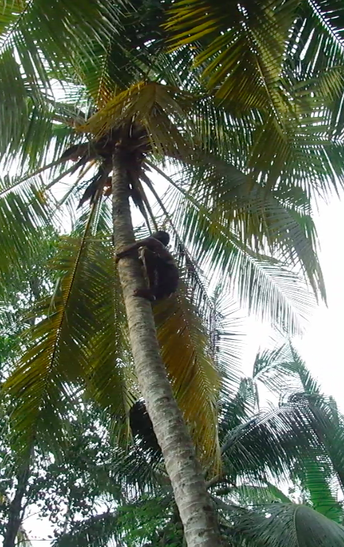
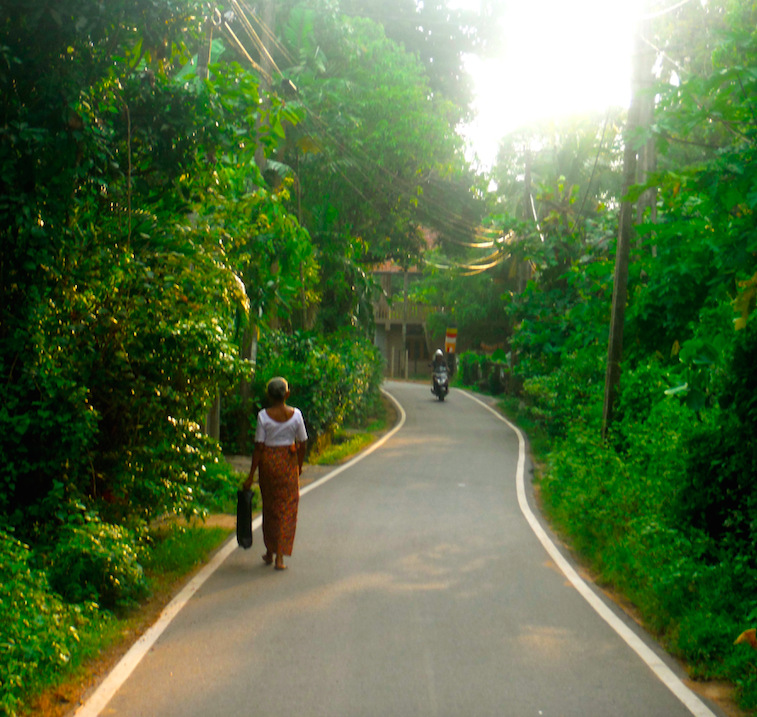
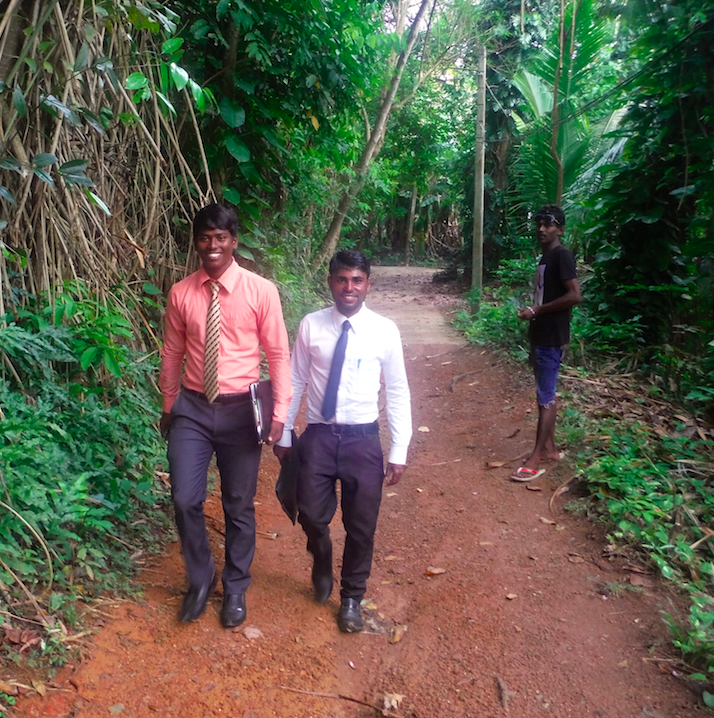
 RSS Feed
RSS Feed